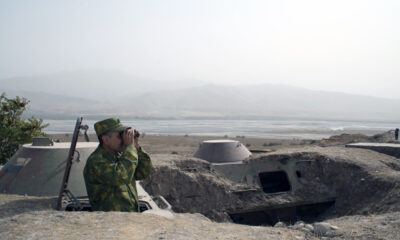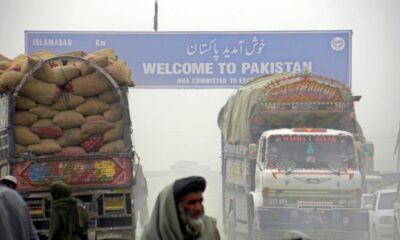Health
WHO warns of increase in dengue cases in Afghanistan
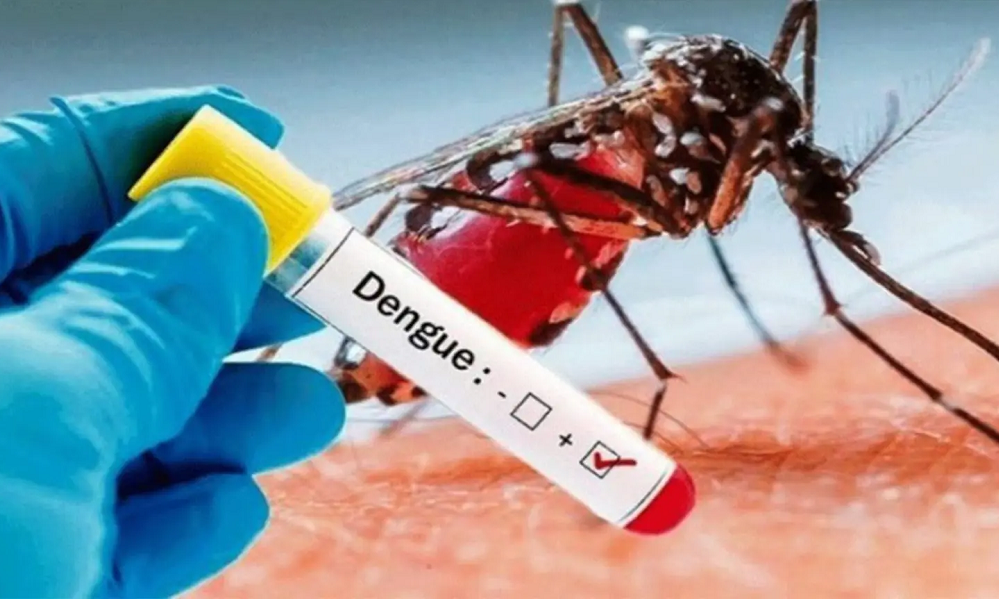
The World Health Organization (WHO) has warned that with the onset of the rainy season, dengue cases could increase in Afghanistan.
WHO Afghanistan said on Twitter that they have trained health workers to manage dengue cases.
“WHO has recently trained 300 doctors, nurses & lab technicians from 18 hospitals & 250 health facilities from Kunar, Laghman, Nuristan & Nangarhar,” it said.
WHO also said that a three-day dengue case management training course was done in 12 batches where a total of 65 female health workers participated.
“As we prepare health facilities, we remind the public to protect yourself and family from mosquito bites and prevent dengue,” WHO said.
Dengue fever symptoms include fever, muscle pain, nausea, and rashes, but it tends to be more severe and sometimes fatal on repeat infection, making its containment a long-term concern.
It is carried by a species of mosquito that thrives in domestic settings, laying eggs in pools of water in and around homes, making areas without running water particularly vulnerable, and monitoring of breeding sites labor-intensive.
Health
Afghan Health Minister hails India visit as new chapter in bilateral ties
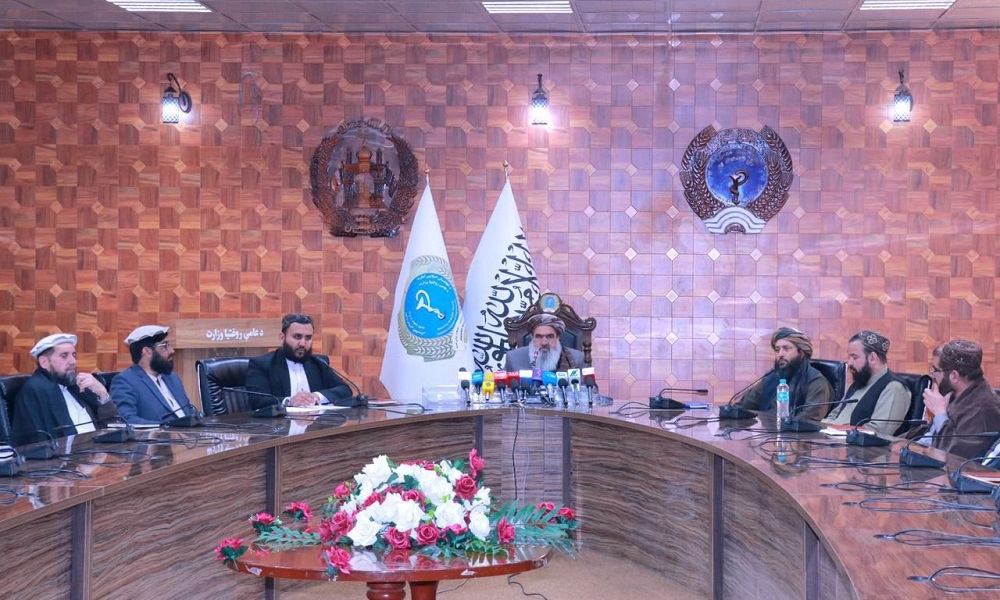
Afghanistan’s Minister of Public Health, Noor Jalal Jalali, has described his recent visit to India as an important new chapter in strengthening health cooperation between Kabul and New Delhi.
Speaking at a press conference in Kabul on Tuesday, Jalali said the trip focused on expanding bilateral health collaboration and addressing key challenges facing Afghanistan’s healthcare system. He outlined the main objectives of the visit as preventing potential medicine shortages, standardizing traditional medicine, importing high-quality and affordable medicines, building the capacity of health workers through training programs, facilitating medical treatment for Afghan patients in India, and developing professional expertise in traditional medicine.
Jalali said India and relevant institutions made several concrete commitments during the visit. These include the provision of vaccines worth $5 million, a radiotherapy machine for cancer treatment valued at $3 million, five tons of cancer medicines worth $1 million, a CT scan machine valued at $300,000, and support for the construction of a hospital and a specialized thalassemia treatment center valued at $500,000.
According to a statement from the Ministry of Public Health, the visit also resulted in agreements on capacity-building programs for specialists and healthcare workers, the donation of 70,000 medical ampoules by an Afghan investor, plans to establish a research center and an institute of traditional medicine in Kabul, the transfer of high-quality medicines to Afghanistan, meeting market needs, and increased investment in the health sector.
The ministry said these outcomes represent significant progress in enhancing healthcare services and long-term cooperation between Afghanistan and India.
Health
Afghan health minister hails India’s support, calls medical visas vital for patients
Jalali said India is planning to build a 30-bed hospital in Kabul’s Bagrami district, which is expected to include an oncology center, a trauma unit, and maternal and child healthcare clinics.
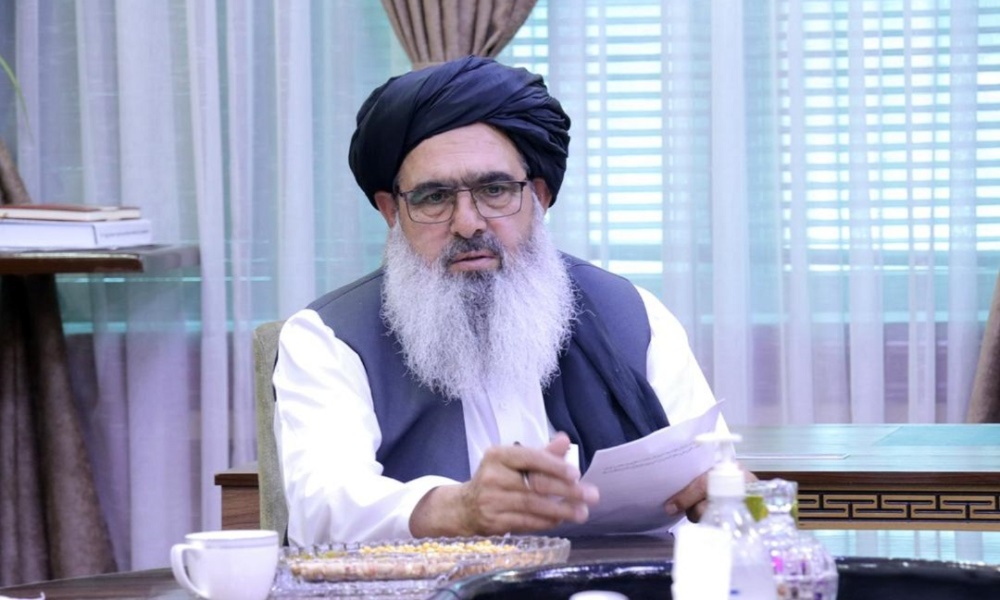
Afghanistan’s Minister of Public Health, Noor Jalal Jalali, has praised India’s long-standing support for Afghanistan’s healthcare sector, describing Indian medical visas as a “vital humanitarian channel” for Afghan patients.
In an interview with an Indian television network, during his official visit to New Delhi, Jalali said Afghans have long relied on India for medical treatment, noting that the facilitation of medical visas has enabled thousands of patients to access advanced healthcare services in recent years.
He welcomed India’s contributions to Afghanistan’s health infrastructure, highlighting the Indira Gandhi Institute of Child Health in Kabul as one of the country’s most important pediatric hospitals.
India has supported the facility through the establishment of a thalassemia center, a modern diagnostic unit, upgrades to heating systems, and plans to provide a CT scan machine.
Jalali said India is also planning to build a 30-bed hospital in Kabul’s Bagrami district, which is expected to include an oncology center, a trauma unit, and maternal and child healthcare clinics.
He added that India has fitted around 75 Afghan patients with prosthetic limbs under the Jaipur Foot program and donated 20 ambulances.
During talks with India’s Minister of Health and Family Welfare, Jalali called for expanded cooperation in medical equipment, pharmaceutical regulation, training of healthcare workers, and the supply of essential medicines, particularly cancer drugs. He said India has pledged to provide these medicines on an urgent basis.
The Afghan health minister stressed the importance of capacity building, including training Afghan doctors in India and deploying Indian medical teams to Afghanistan.
He also said agreements have been reached to cooperate in traditional medicine, including Ayurveda and Unani practices, with plans to establish a Traditional Medicine Institute and Research Center in Afghanistan.
Jalali noted that Afghanistan has diversified its pharmaceutical import routes to ensure a steady supply of medicines and address concerns over counterfeit and substandard drugs through stronger regulation.
He described Afghanistan–India relations as people-centric and rooted in humanitarian values, expressing hope that cooperation in healthcare, pharmaceuticals, and medical infrastructure will continue to deepen.
Health
Afghan health officials visit Indian medical institute to expand ties
India has historically been a key partner in Afghanistan’s health and education sectors, providing training, medical support and institutional cooperation.
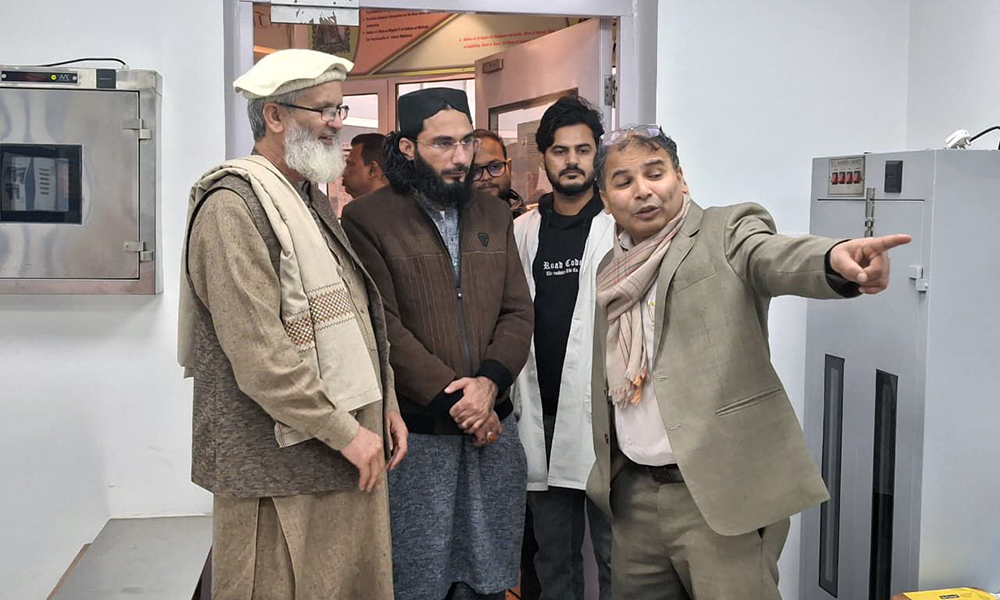
During an official visit to India, a technical delegation from Afghanistan’s Ministry of Public Health visited the Hamdard Institute of Medical Sciences and Research (HIMSR) in New Delhi, as part of efforts to strengthen cooperation in the health sector, particularly in the field of traditional medicine.
Officials and senior professors at HIMSR welcomed the Afghan team and provided detailed briefings on the institution’s academic programmes, research activities and medical services.
Discussions focused on opportunities for closer collaboration in traditional and integrative medicine, an area where Hamdard has long-standing expertise and international recognition.
HIMSR’s leadership expressed readiness to work with Afghan health authorities on joint research initiatives, quality testing and standardisation of traditional medicines through Hamdard’s laboratories, as well as knowledge-sharing programmes. The institution also pledged to offer scholarships and specialised training opportunities for Afghan doctors and medical professionals.
The visit comes as Afghanistan seeks to rebuild and strengthen its public health system amid ongoing economic and humanitarian challenges, with an emphasis on cost-effective and culturally accepted healthcare approaches such as traditional medicine.
India has historically been a key partner in Afghanistan’s health and education sectors, providing training, medical support and institutional cooperation.
Both sides said enhanced collaboration would contribute to improving public health outcomes, standardising traditional medicine practices, and expanding scientific and medical institutions in Afghanistan.
They reaffirmed their commitment to developing the partnership in a sustainable manner, aimed at long-term capacity building and mutual benefit.
-

 Latest News2 days ago
Latest News2 days agoAfghanistan exports 10 containers of batteries to Saudi Arabia and UAE for first time
-

 Latest News2 days ago
Latest News2 days agoPakistani cleric condemns lifetime immunity for Army Chief as un-Islamic
-

 Latest News4 days ago
Latest News4 days agoAfghanistan signs 30-year deal for marble mining in Daikundi
-

 Latest News5 days ago
Latest News5 days agoAfghan health minister calls for medical cooperation between Kabul and New Delhi
-

 Latest News4 days ago
Latest News4 days agoBush Institute criticizes Trump administration’s Afghan immigration freeze
-

 International Sports2 days ago
International Sports2 days agoAriana News to broadcast key AFC Champions League Two clash
-

 Regional2 days ago
Regional2 days agoPakistan agrees to $4 billion arms deal with Libyan National Army
-

 Health2 days ago
Health2 days agoAfghan Health Minister hails India visit as new chapter in bilateral ties




